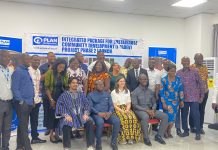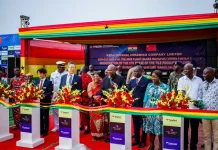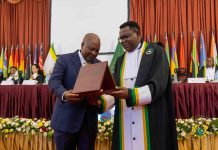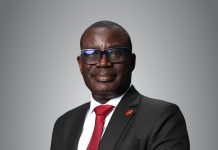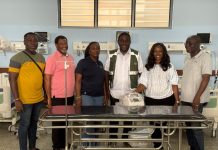Latest data from the World Health Organization indicate a global number of 2.3 million women having breast cancer and about 685,000 dying as a cause of this condition for only the year 2020.
Additionally, at the end of that same year, 7.8 million women were reported to be living with breast cancer for 5 years placing it as the predominant cancer among females.
There is no doubt that breast cancer is a public health menace, therefore needs much attention so that it does not overwhelm our coping health systems.
Breast cancer, although erroneously ascribed by many to be exclusive to women, is now gaining grounds to also affect men howbeit with a small percentage.
This cancer affects women from as early as puberty but with greater risk among adults. In addition to age, other factors such as obesity, excessive alcohol intake, a positive family history of the cancer, early menarche, tobacco use and post-menopausal therapy have been reported to increase the risk of getting breast cancer.
Nevertheless, about 50% of breast cancers are without these notable risk factors except being female and an adult over 40 years.
Even though breast cancer presents with symptoms such as breast lumps without pain, change in size of breast or nipple appearance and bloody fluid from nipple, many do not present with signs in the early stage of the cancer. When the cancer progresses, it can spread to other organs like the lung, liver and brain.
For low-middle income countries such as Ghana, early detection remains the best chance to stem the tide and possibly roll back adverse outcomes of breast cancer.
It is essential in achieving this that we continue to educate our communities on the need for early and regular breast examinations for all women who have reached puberty and beyond.
On this note, it is in order to appreciate the many health workers in Ghana leading the charge against breast cancer through advocacy, screening and survivorship management.
It is however fair to single out Dr. Mrs. Beatrice Wiafe Addai, of the Breast Care International and Peace & Love Hospitals, a name synonymous with championing breast care for over two (2) decades in Ghana.
We acknowledge your immense contribution to educating many and providing management for the condition which has improved the quality of life of breast cancer survivors. Ayekoo to you and your team!
Let us all continue to promote the month of October (PINKtober) for awareness creation on breast cancer and the need for more of our women to get screened early and on a regular basis.
Be an advocate for breast cancer awareness as you share in this thought by Ann Jillian, a survivor of breast cancer, which says;
“There is life after breast cancer, the prerequisite is early detection”.
ISSUED BY
FRIMPONG-MANSO INSTITUTE
Rev. Prof. Paul Frimpong-Manso (President)
Dr. Samuel Nkansah Darko (Clinical Biochemist/Molecular Biologist (KNUST)
and Fellow – Science, Technology and Health thematic area).
For comments and queries contact Dr. Samuel Nkansah Darko – 024 218 5228
Thank you.


